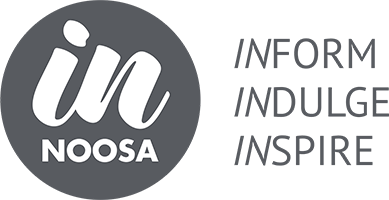
ANZAC Day: Time To Talk
Every ANZAC Day we pay tribute to the heroes who protect our way of life, but this year there is a focus on a new wave of modern veterans. An army of volunteers are working hard to support their mental health and, as Jolene Ogle discovers, it’s time to talk.
With more than 30 years of active service, 10 tours of duty in the Middle East and countless aid missions, Warrant Office Peter Kennedy knows better than anyone the impacts that active service can have on families and individuals. Peter joined the Air Force in 1988 as a 17-year-old and has spent the past 32 years in the Air Force serving Australia and helping in aid missions to countries around the world.
He was diagnosed with post-traumatic stress disorder (PTSD) 12 months ago and now, as the newly-appointed president of the Young Veterans Sunshine Coast chapter, he is excited to start the conversation around PTSD and to help returned and active servicemen and women reintegrate into the community.
“Since being diagnosed with PTSD, it’s only these past few months that I can talk about it. Prior to that, I didn’t want to discuss it,” he said. “You feel weak and embarrassed and all that stuff your brain tells you to feel.
“But now, I’m glad I’ve been through it. It changed me as a person and I can understand what is really important and that is family and friends. I think without going through this journey, I wouldn’t have realised that.”
Young Veterans Sunshine Coast is a not-for-profit, nation-wide organisation with a strong focus on bringing together active and returned service personnel and their families in a social environment.
“It’s tough on the veterans who go (on active tours of duty), but it’s equally as tough on the families,” he says.
“I don’t think that gets recognised enough, but this is where Young Veterans can help. Our focus is on serving members, veterans and their families.
“We are a veteran’s organisation run by veterans so we understand what happens. We understand modern deployment and systems.”
As Peter explains, it’s all about getting people together and starting a conversation to normalise mental health and well-being.
“The charter for Young Veterans is about bringing together serving members and veterans with their families in a social environment. What that does is stop the isolation because the first thing a veteran will do when they are having trouble, is isolate,” he said.
“The lack of social interaction is the killer… but, by putting on events that get them out of the house and socialising, it helps them to normalise their behaviour.”
Tewantin Noosa RSL Sub-Branch president Mick Read said the perception of a veteran was expanding to include young veterans who have served in the Middle East, and the RSL is recognising the changing needs of its members and working to be an inclusive organisation.
“The focus has to be on the next generation coming through. There is a change happening,” he says.
“Transitioning out of service is a hard thing. When I left service after 12 years and having joined at 15, I had never been a civilian. At 27 I’m suddenly a civilian and I’m getting married. You struggle.
“You’ve lost all that structure, your mates, the uniform, and then you get into this big ugly world called civilian life. This still happens today.”
Mick explains that the sub-branch now hosts monthly lunches in collaboration with Young Veterans and is incorporating more family-friendly events into their activities.
“The RSL is focusing on the family unit. We have realised it’s the family unit that needs caring for, not just the veteran,” Mike says.
“It’s a more holistic approach now. The modern veteran wants more social, family-friendly activities whereas my generation would go to the pub and have a beer with mates. That was the way to deal with it all.
“Now, organisations such as Young Veterans, they want to go surfing and have picnics. We (the sub-branch) are aware of this and are moving in that direction.”
As Peter explains, “there are some great organisations out there and we work separately, but if we pull together we’re stronger.”
Former Commando and Electronic Warfare Specialist and founder of Invisible Injuries Andy Fermo agree that coming together and talking in the best way to support veterans, active members and their families. In fact, Andy is about to head around Australia with his family to share his story with others as part of his not-for-profit charity Invisible Injuries.
Andy will share his experience within the army and the resulting PTSD diagnosis and says he hopes to inspire others to do the same.
“I want people to know, they don’t need to feel lonely,” he says. “Lots of people, especially guys, try to hold it all in, but I’m glad to share. I hope we can all share our experiences and be stronger for it.”
If you or anyone you know needs help:
• Lifeline on 13 11 14
• MensLine Australia on 1300 789 978
• Suicide Call Back Service on 1300 659 467
• Beyond Blue on 1300 22 46 36
• Headspace on 1800 650 890
• Care Leavers Australasia Network (CLAN) on 1800 008 774
• Open Arms on 1800 011 046
• Tewantin Noosa RSL Sub Branch on 5447 1981



